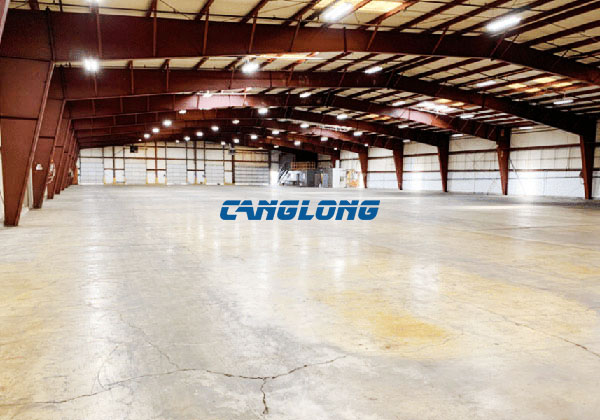Large Span Metal Buildings
| PRODUCT PARAMETER | |
|---|---|
| Place of Origin: | Henan, China (Mainland) |
| Standard: | GB Standard, EU Standard, ASTM Standard, BS Standard, AS/NZS Standard |
| Certificates: | CE, ISO9001 |
| Grade: | Q235 / Q355 |
| Type: | Steel Structure |
| Surface Treatment: | Painted & Hot dip galvanized |
| Columns/Beams: | H-Shaped Steel |
| Purlins: | C/Z Section Steel Channel |
| Wall/Roof Panel: | Sandwich Panel, Color Steel Plate |
Product Detail
With the rapid development of modern construction technology, large span metal buildings have become an eye-catching architectural form. This type of building has been widely used in various fields with its unique structure, wide range of uses, remarkable features and significant advantages. These buildings are usually composed of high-strength steel structural skeletons and lightweight metal plates. Through precise design and advanced construction technology, extra large internal spaces are achieved.
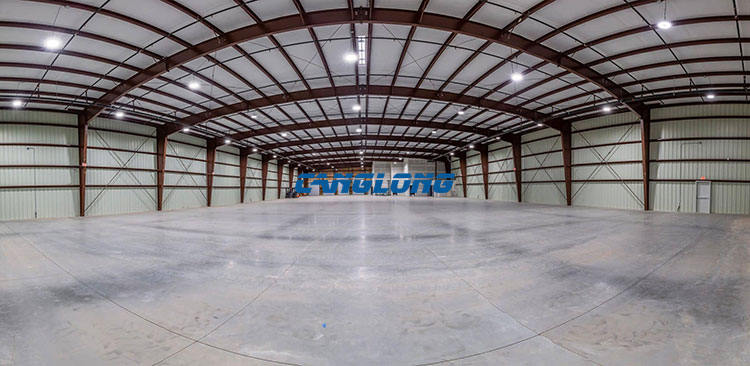
Structure composition
Large span metal buildings use steel structures as the skeleton, and build a stable and flexible support system through welding, bolting, etc. These steel structures can withstand huge loads and have good earthquake resistance. At the same time, the building’s outer envelope usually uses lightweight metal plates, such as aluminum plates, color steel plates, etc., which not only ensures the thermal insulation performance of the building, but also reduces the weight of the overall structure. The core of a long-span metal building lies in its strong yet lightweight metal structural system. It mainly consists of the following parts:
- Steel columns and steel beams: As the main load-bearing components of the building, steel columns and steel beams are closely combined through welding, bolting, etc. to form a stable space frame. These steel components not only have high strength and excellent load-bearing capacity, but also have good plasticity and toughness, and can adapt to various complex building forms.
- Metal roof and wall panels: As building envelopes, metal roof and wall panels are usually made of lightweight, high-strength alloy materials. They not only have excellent thermal insulation and heat insulation properties, but can also resist wind, rain erosion and ultraviolet radiation, ensuring the stability and safety of the building’s internal environment.
- Connectors and Fasteners: Connectors and fasteners are an integral part of large-span metal buildings. They are responsible for tightly connecting various components together to ensure the stability and safety of the entire building structure.
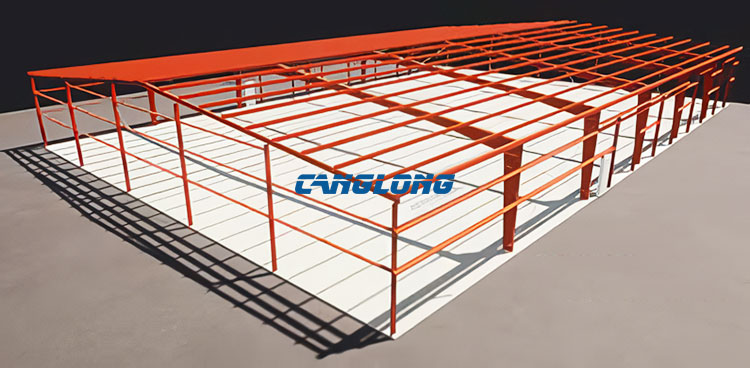
Application
Large-span metal buildings are widely used in stadiums, convention and exhibition centers, airport terminals, factory workshops and other places that require large space and high flexibility. These buildings can meet a variety of complex functional requirements and provide spacious, bright and comfortable interior environments. mainly include:
- Public buildings: such as stadiums, exhibition halls, terminals, etc. These buildings require spacious spaces and flexible layouts. Large span metal buildings can meet these needs and provide a stable indoor environment.
- Industrial Plant: Long span metal buildings are ideal for industrial plants. They are able to accommodate large equipment and production lines, provide a stable production environment, and meet the special needs of industrial production.
- Commercial facilities: Commercial facilities such as shopping malls and warehouses also often use long-span metal buildings. This type of building can provide flexible space layout and efficient logistics channels to meet the needs of commercial activities.
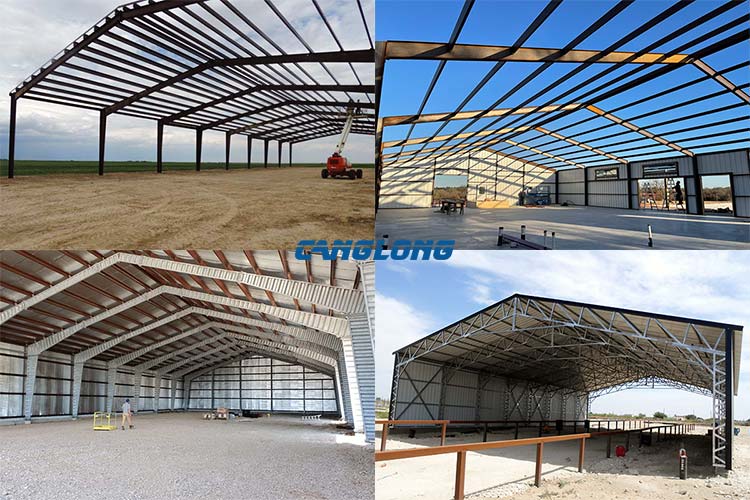
Features
The characteristics of large-span metal buildings are mainly reflected in the following aspects:
- Lightweight and high-strength: Metal materials are lightweight and high-strength, allowing long-span metal buildings to reduce their own weight while still maintaining excellent load-bearing capacity.
- Fast construction speed: Metal components can be prefabricated in the factory, and on-site installation is quick and easy, greatly shortening the construction period.
- Flexible and changeable: The metal structural system has good plasticity and toughness and can adapt to various complex architectural forms and functional requirements.
- Environmental protection and energy saving: Metal buildings pay attention to environmental protection and energy saving during the design and construction process, and use efficient and energy-saving materials and technologies to reduce building energy consumption and carbon emissions.
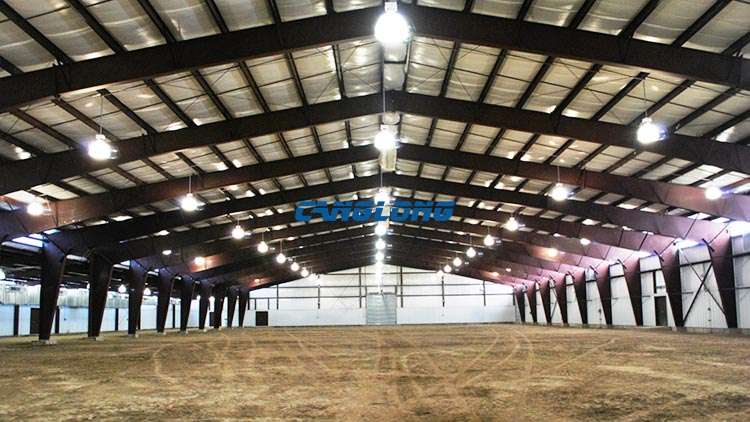
Advantages
Compared with traditional buildings, large span metal buildings have significant advantages. The advantages of long-span metal buildings are mainly reflected in the following aspects:
- Economic benefits: Metal buildings have a short construction period and high construction efficiency, and can be quickly put into use and generate economic benefits. At the same time, the recyclability of metal materials also reduces construction costs.
- Social benefits: Large-span metal buildings can provide spacious and bright indoor spaces and improve people’s living and working environment. At the same time, its environmental protection and energy saving characteristics also meet the requirements of sustainable development.
- Safe and reliable: The metal structure system has good stability and earthquake resistance, which can ensure the safety of the building in harsh environments. In addition, the corrosion resistance of metal materials also ensures the durability of the building.
To sum up, large span metal buildings are playing an increasingly important role in the field of modern architecture with their unique structural composition, wide range of uses, significant features and advantages.
